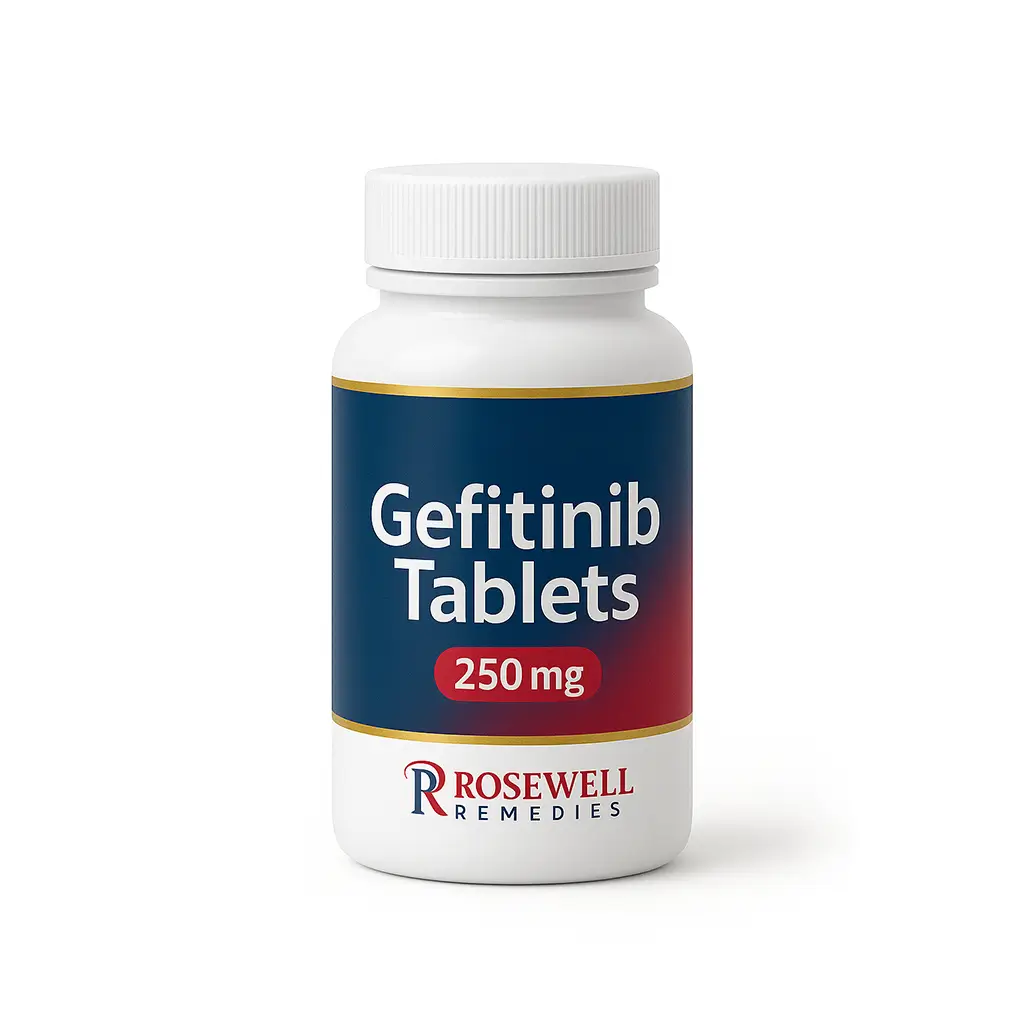
Gefitinib Tablets
Pharmaceutical Form: Tablets
Strength/Pack: 250 mg
Patients with non-small cell lung cancer (NSCLC) who have specific mutations in the EGFR (epidermal growth factor receptor) gene are treated with gefitinib. When the cancer has progressed to a metastatic stage and chemotherapy is either unsuccessful or not suitable, gefitinib is typically administered. It works as an inhibitor of EGFR tyrosine kinase. By inhibiting it, the cell growth is stopped and cell death is induced.